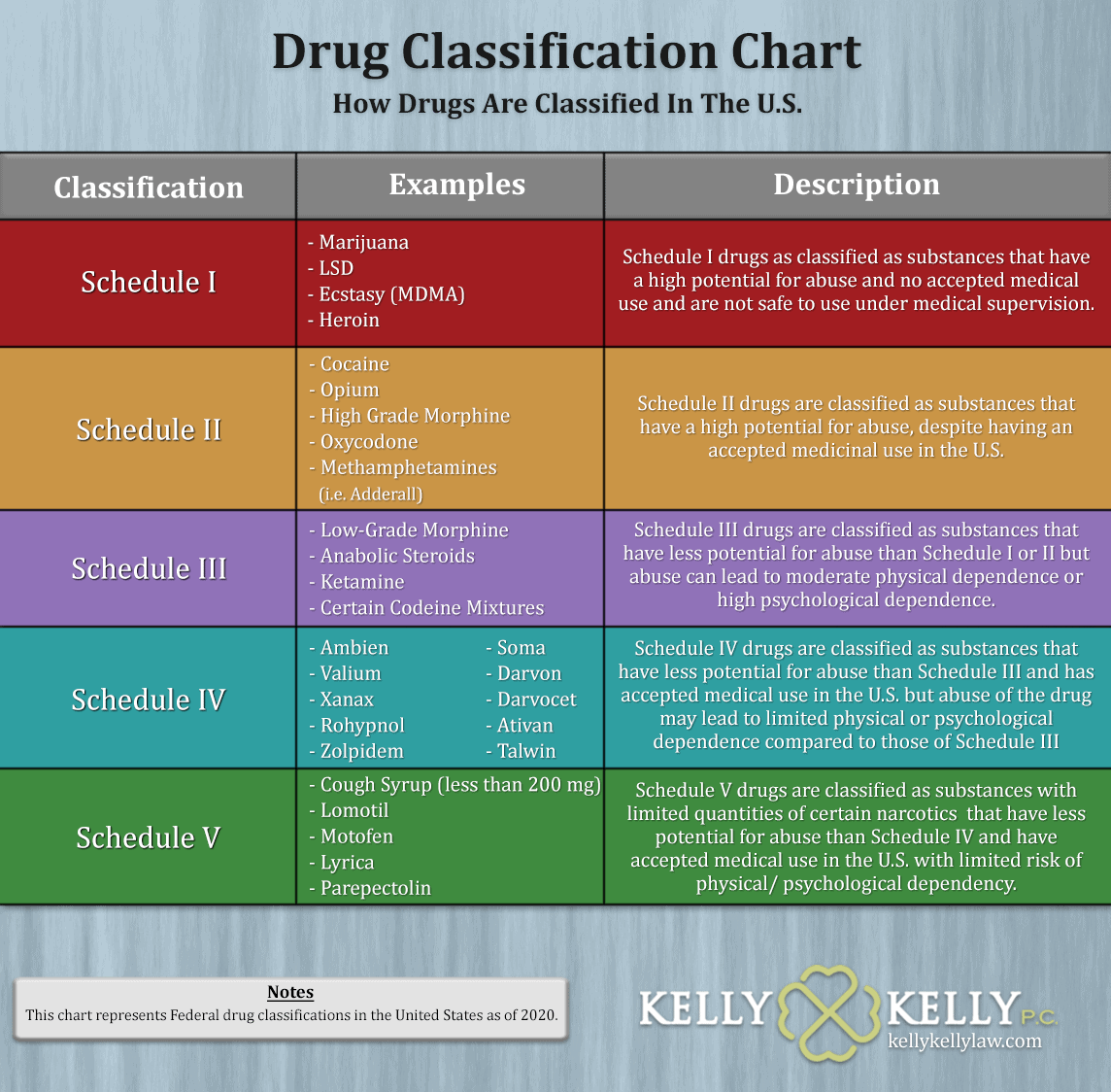
Partner, Juvenile Lawyer
Juvenile Drug Offenses
Juvenile defense lawyers specialize in legal issues affecting minors. They advocate for young clients in court, addressing matters that may range from school discipline to criminal charges. This includes juvenile drug offenses.
Kelly & Kelly P.C. has significant experience in juvenile law. Our attorneys provide legal representation for minors in various contexts ranging from school-related offenses to more serious legal challenges. Our team offers counsel and support for both individuals and families navigating the complexities of the juvenile legal system.
Types of Juvenile Drug Offenses
In Michigan, juvenile drug offenses involve minors (individuals under the age of 18) engaging in illegal drug-related activities. These offenses can vary in severity from possession of small amounts of controlled substances to more serious crimes involving distribution or manufacturing. Here are some common juvenile drug offenses in Michigan:
Possession of Controlled Substances: This includes possessing illegal drugs such as marijuana (in contexts where it’s not permitted for minors), cocaine, heroin, methamphetamine, and unauthorized prescription medications.
Possession of Drug Paraphernalia: Having items that are used in the consumption, production, or distribution of illegal drugs, such as pipes, syringes, and scales.
Use of Controlled Substances: Actual use of illegal drugs or unauthorized use of prescription medications.
Distribution or Intent to Distribute: Selling, distributing, or intending to distribute illegal drugs. This can include sharing drugs with friends, even without the exchange of money.
Manufacturing of Controlled Substances: Involvement in the production of illegal drugs, which can also include growing marijuana plants without legal permission.
Prescription Fraud: Attempting to obtain prescription medicine through forgery, deceit, or fraud. This can include altering prescriptions or using someone else’s prescription.
Operating Under the Influence: Operating a vehicle while under the influence of drugs, similar to DUI/DWI laws for alcohol but applied to drug use.
Michigan’s approach to juvenile drug offenses often focuses on rehabilitation and education rather than punishment alone. Depending on the severity of the offense and the circumstances, minors may face consequences ranging from participation in drug education programs, community service, probation, to placement in a juvenile detention facility for more serious offenses.
The goal is to address the underlying issues contributing to drug use and to prevent future involvement in drug-related activities.
Juvenile Drug Possession Charges
Juvenile drug possession charges in Michigan are taken seriously, reflecting both the state’s concern for public health and safety and its interest in rehabilitating young offenders. When a minor is found in possession of illegal drugs, the nature of the charges and the subsequent legal proceedings are influenced by several factors, including the type of substance, the quantity of the drug, and the circumstances of the possession. Here’s an overview of how juvenile drug possession charges are addressed:
Nature of the Substance – The severity of juvenile drug possession charges can vary significantly based on the type of controlled substance involved. Michigan categorizes controlled substances into schedules, with Schedule I substances (e.g., heroin, LSD) considered the most dangerous and having a high potential for abuse, and Schedule V substances considered the least harmful. Possession of Schedule I or II substances typically results in more severe charges than possession of substances in lower schedules.
Quantity of the Drug – The amount of the drug in the juvenile’s possession also impacts the seriousness of the charges. Possessing small amounts intended for personal use may lead to lesser charges than possessing larger quantities, which could imply intent to distribute, resulting in more severe legal consequences.
Circumstances of the Possession – The context in which the drugs were found can influence the charges and outcomes. For instance, possession of controlled substances on school property may lead to more severe penalties due to laws specifically designed to protect minors and create drug-free zones around schools.
Michigan Drug Laws
Under Michigan Law (MCL 333.7403), drugs are listed in 5 categories of controlled substances.
Schedule I: A drug is classified as Schedule I if it has a high potential for abuse and no accepted medical use in the United States, and is not safe to use under medical supervision. Types of Schedule I drugs include: LSD, Peyote, Ecstasy (MDMA), Mushrooms, Heroin, and Marijuana. Schedule I offenses are the most widely prosecuted offenses in Michigan, so if you are facing a charge for possession of a Schedule I substance it is important that you contact an attorney immediately.
Schedule II: A drug is classified as Schedule II if it has a high potential for abuse, despite it having a currently accepted medicinal use in the United States, or currently accepted medicinal use with severe restrictions. Types of Schedule II drugs include: Cocaine, Opium, high grade Morphines, Oxycodone, and Methamphetamines (Adderall). It is important if you have a valid prescription for any of these Schedule II drugs that you keep it with you anytime you are traveling with your medications. Putting your meds in a ziploc bag as you head out for a long weekend up north is not safe. If you are stopped by a police officer and he searches you or your property and discovers the medications without an accompanying prescription, you could quickly find yourself charged with a serious felony for “Possession with the Intent to Deliver.”
Schedule III: A drug is classified as Schedule III if its potential for abuse if less than that of Schedule I or Schedule II drugs and it has currently accepted medical use in the United States, but abuse of the drug can lead to low to moderate physical dependence or high psychological dependence. Types of Schedule III drugs include: low-grade Morphine, Anabolic Steroids (Ketamine), some Codeine mixtures, among others.
Schedule IV: A drug is classified as Schedule IV if its potential for abuse is less than that of Schedule III drugs and the substance has a currently accepted medical use in the United States, but abuse of the drug may lead to limited physical or psychological dependence compared to those of Schedule III substances. Types of Schedule IV drugs include: Ambien, Valium, Xanax, Rohypnol, Zolpidem, Soma, Darvon, Darvocet, Ativan, Talwin, and Tramadol, among others.
Schedule V: A drug is classified as Schedule V if its potential for abuse is lower than that of Schedule IV drugs and has a currently accepted medical use in the United States along with limited risk of physical or psychological dependency, and consists of limited quantities of certain narcotics. Types of Schedule V drugs include: cough syrups with less than 200 milligrams of codeine or per 100 milliliters (Robitussin AC), Lomotil, Motofen, Lyrica, Parepectolin.
Schedule I & Schedule II Substances
When someone is arrested for a drug offense, the charge is usually for possession of a schedule I substance (i.e. marijuana) or Schedule II substance (i.e. Cocaine). Here’s a simplified list of penalties depending on the amount in possession.
- Less than 25 grams – four years in prison and/or $25,000 in fines.
- 25-49 grams – four years in prison and/or $25,000 in fines.
- 50-449 grams – twenty years in prison and/or $250,000 in fines.
- 450-999 grams – thirty years in prison and/or $500,000 in fines.
- 1,000+ grams – Life in prison and/or $1,000,000 in fines.
Impact On Driver’s License
Michigan law requires driver’s license suspensions for convictions on drug charges, even if you were not driving at the time of the offense.
First Offense – If you do not have any prior drug convictions, your license will be suspended for 6 months. However, you may be eligible for a restricted license after the first 30 days of that suspension.
Offenses With Prior Convictions – if you have one or more prior drug convictions within 7 years, your driver’s license will be suspended for 1 year. No restricted license is allowed for the first 60 days of the suspension.
Reinstating Your Driver’s License – After the suspension time has passed, you may have your license restored to full privileges upon payment of a $125 reinstatement fee. This fee is in addition to a reinstatement fee required for any other driver’s license sanctions.
This page was legally reviewed by Michael Kelly. Michael has been a practicing criminal defense attorney and juvenile lawyer for many years. Throughout this time he’s represented clients through various complex issues involving the education and criminal court system. This includes, representing students accused of criminal offenses, suspension/expulsion, DUI/OWI charges, expungements, and more. Michael has served on the ICLE Criminal Law Advisory Board and is recognized as top 10 Under 40 for Criminal Defense in Michigan by The National Academy of Criminal Defense Attorneys. He also regularly contributes to the Institute of Continuing Legal Education (ICLE) as a speaker on issues involving criminal law and juvenile defense.





